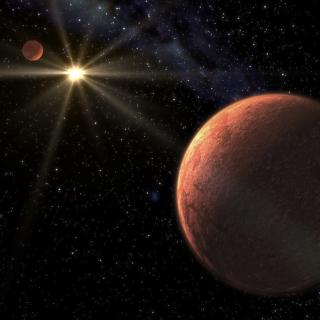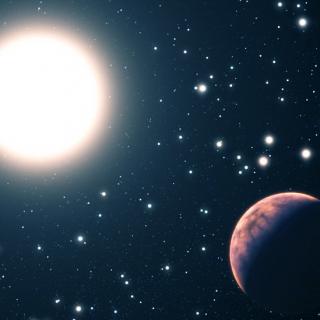Bibcode
Israelian, Garik; Delgado Mena, Elisa; Santos, Nuno C.; Sousa, Sergio G.; Mayor, Michel; Udry, Stephane; Domínguez Cerdeña, Carolina; Rebolo, Rafael; Randich, Sofia
Referencia bibliográfica
Nature, Volume 462, Issue 7270, pp. 189-191 (2009).
Fecha de publicación:
11
2009
Revista
Número de citas
133
Número de citas referidas
106
Descripción
The surface abundance of lithium on the Sun is 140 times less than the
protosolar value, yet the temperature at the base of the surface
convective zone is not hot enough to burn-and hence deplete-Li (refs 2,
3). A large range of Li abundances is observed in solar-type stars of
the same age, mass and metallicity as the Sun, but such a range is
theoretically difficult to understand. An earlier suggestion that Li is
more depleted in stars with planets was weakened by the lack of a proper
comparison sample of stars without detected planets. Here we report Li
abundances for an unbiased sample of solar-analogue stars with and
without detected planets. We find that the planet-bearing stars have
less than one per cent of the primordial Li abundance, while about 50
per cent of the solar analogues without detected planets have on average
ten times more Li. The presence of planets may increase the amount of
mixing and deepen the convective zone to such an extent that the Li can
be burned.
Proyectos relacionados

Estrellas de Baja Masa, Enanas Marrones y Planetas
Se investigan los procesos que conducen a la formación de estrellas de baja masa, enanas marrones y exoplanetas y caracterizar las propiedades físicas de estos astros en varias etapas evolutivas. Las estrellas de muy baja masa y las enanas marrones son probablemente los objetos más numerosos de nuestra Galaxia, pero no por ello están
Rafael
Rebolo López

Pruebas Observacionales de los Procesos de Nucleosíntesis en el Universo
Recientemente se han llevado a cabo varios análisis espectroscópicos de estrellas con planetas. Uno de los resultados más relevantes ha sido descubrir que las estrellas con planetas son en promedio más metálicas que las estrellas del mismo tipo espectral sin planetas conocidos (Santos, Israelian & Mayor 2001, A&A, 373, 1019; 2004, A&A, 415, 1153)
Garik
Israelian